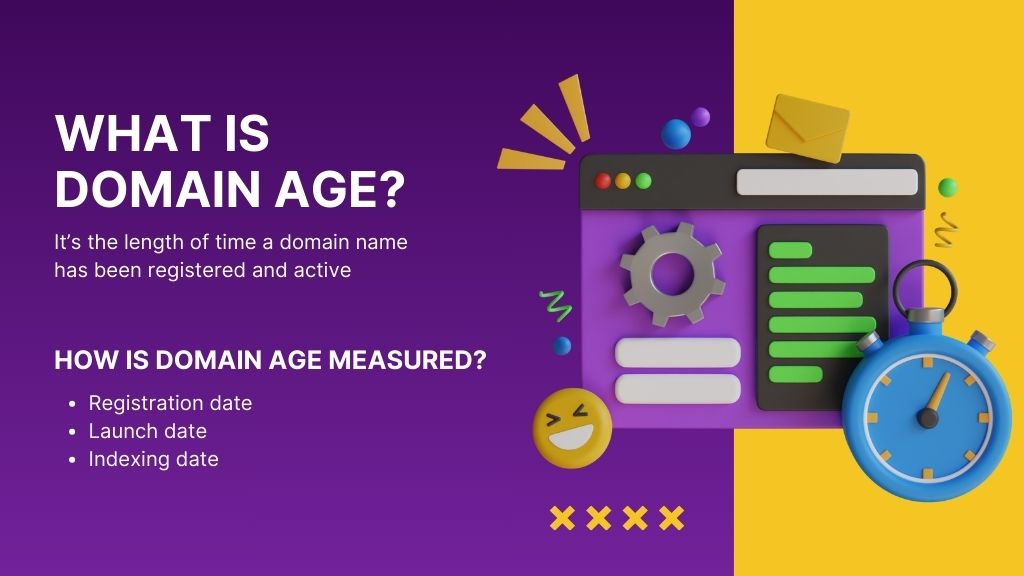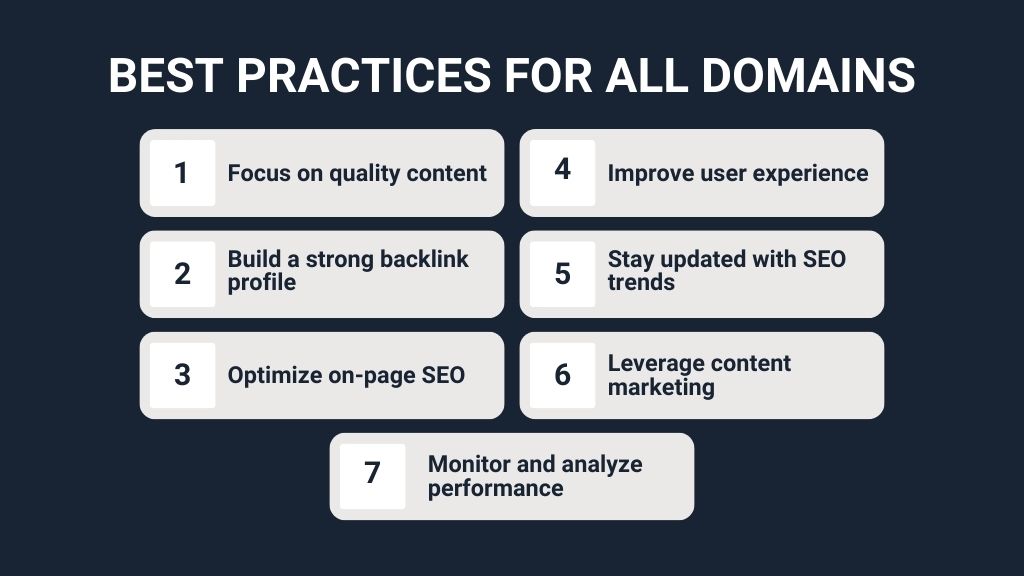Is Domain Age a Crucial Ranking Factor?

In the world of search engine optimization (SEO), there are many factors that can influence a website’s ranking on search engine results pages (SERPs). One factor that often comes up in discussions is domain age. Some believe that older domains have an inherent advantage in search rankings simply because they’ve been around longer.
But is domain age really a crucial ranking factor? In this blog post, we’ll dive into what domain age is, how it might impact SEO, and whether or not it should be a focus in your digital strategy.
In this article:
- What is Domain Age?
- Domain Age and SEO
- How Domain Age Could Indirectly Affect SEO
- Comparing Old vs. New Domains
- Google’s Stance on Domain Age
- Best Practices for Domains of Any Age
What is Domain Age?
Domain age refers to the length of time a domain name has been registered and active. It’s basically how old a website is, from the day the domain was first purchased until today. For example, if a website was registered in 2010, as of 2024, the domain age would be 14 years.
How is Domain Age Measured?
There are a few ways to measure domain age:
- Registration Date: This is the date when the domain was first registered.
- Launch Date: The actual launch date when the website became active and started publishing content.
- Indexing Date: The date when search engines first discovered and indexed the website.
Domain Age and SEO
Why Some Believe Domain Age Matters
The idea that domain age is a significant ranking factor stems from the belief that older domains are more trustworthy. If a domain has been around for a long time, it might indicate stability, reliability, and a proven track record. Some SEO experts argue that search engines like Google may give preference to older domains for these reasons.
Why Domain Age Might Not Matter
On the flip side, many SEO professionals argue that domain age alone is not a direct ranking factor. Google has stated that the age of a domain does not have a significant impact on search rankings. Instead, the focus should be on the quality of the content, backlinks, and overall user experience.

How Domain Age Could Indirectly Affect SEO
Trust and Credibility
While domain age itself may not be a ranking factor, older domains often have an advantage when it comes to trust and credibility. A domain that has been around for many years may have built up a strong reputation, a loyal audience, and a wealth of high-quality content. This can lead to better engagement, more backlinks, and ultimately, higher rankings.
Backlink Profile
Older domains have had more time to accumulate backlinks from other reputable websites. A strong backlink profile is one of the most important factors in SEO. Search engines see backlinks as a vote of confidence from other websites, and a domain with many high-quality backlinks is likely to rank higher.
Content Depth and Authority
Over time, an older domain can build up a large amount of content. If this content is relevant, high-quality, and covers topics in-depth, the website can boost its domain authority. Search engines favor authoritative sites because they provide valuable information to users.
Historical Data
Search engines collect historical data about domains. An older domain with a history of providing valuable content, maintaining good SEO practices, and consistently attracting visitors can benefit from this data. However, if a domain has a history of spammy practices or poor content, it might actually be at a disadvantage despite its age.
Comparing Old vs. New Domains
Advantages of Older Domains
- Established Backlink Profile: Older domains often have a more extensive and higher-quality backlink profile.
- Trust and Authority: Older domains might be perceived as more trustworthy and authoritative, especially if they have a history of quality content.
- User Base: Older domains may have a loyal audience that continues to visit the site, leading to better engagement metrics.
Challenges for New Domains
- Building Authority: New domains need to work harder to build authority and trust. It takes time to establish a solid reputation.
- Acquiring Backlinks: New domains often struggle to get high-quality backlinks early on. They need to focus on creating valuable content that other sites want to link to.
- Content Development: New domains usually have less content, and it can take time to build up a library of high-quality, relevant content.
Can New Domains Compete?
Absolutely! While new domains face challenges, they can still compete effectively with older domains. By focusing on quality content, smart SEO practices, and building relationships to earn backlinks, new domains can quickly establish themselves in the search rankings.
Google’s Stance on Domain Age
Official Statements from Google
Google has addressed the issue of domain age several times. According to Google, domain age is not a major ranking factor. What matters more are the relevance, quality, and freshness of the content, as well as the site’s backlink profile and overall user experience.
This means that while an older domain might have certain advantages due to its history, these are not because of the domain’s age itself but because of the cumulative SEO efforts over time. Newer domains can quickly rise in the rankings by focusing on what really matters: quality, relevance, and user experience.

Best Practices for Domains of Any Age
Focus on Quality Content
Regardless of the age of your domain, the quality of your content is critical. Ensure that your content is informative, relevant, and provides real value to your audience. This is what search engines prioritize and can help you become an authority site.
Build a Strong Backlink Profile
Work on earning high-quality backlinks from reputable websites. Guest blogging, content outreach, and building relationships in your industry can help you acquire valuable links that boost your rankings.
Optimize On-Page SEO
Pay attention to on-page SEO factors like title tags, meta descriptions, header tags, and keyword usage. Make sure your site is optimized for both search engines and users.
Improve User Experience
User experience is a key factor in SEO. Ensure your site is mobile-friendly, loads quickly, and is easy to navigate. Good user experience leads to better engagement metrics, which can positively impact your rankings.
Stay Updated with SEO Trends
SEO is constantly evolving. Stay informed about the latest trends, algorithm updates, and best practices to ensure your website remains competitive, regardless of its age.
Leverage Content Marketing
Content marketing is a powerful tool for building authority and driving direct traffic. Regularly publish high-quality blog posts, videos, infographics, and other types of content to engage your audience and attract backlinks.
Monitor and Analyze Performance
Use tools like Google Analytics and Google Search Console to monitor your website’s performance. Regularly review your traffic, rankings, and user behavior to identify areas for improvement.
Age Doesn’t Matter
While domain age can provide certain indirect benefits, such as a strong backlink profile and established authority, it is not a crucial ranking factor in and of itself. Search engines like Google prioritize the quality, relevance, and user experience of your content over how long your domain has been around.
Whether your domain is new or old, focusing on proven SEO strategies—like creating high-quality content, building a strong backlink profile, optimizing on-page SEO, and improving user experience—will be far more effective in achieving SEO success than relying on domain age.
Let Link Genius help you with your backlinking efforts through high-quality backlink opportunities. Sign up today!
